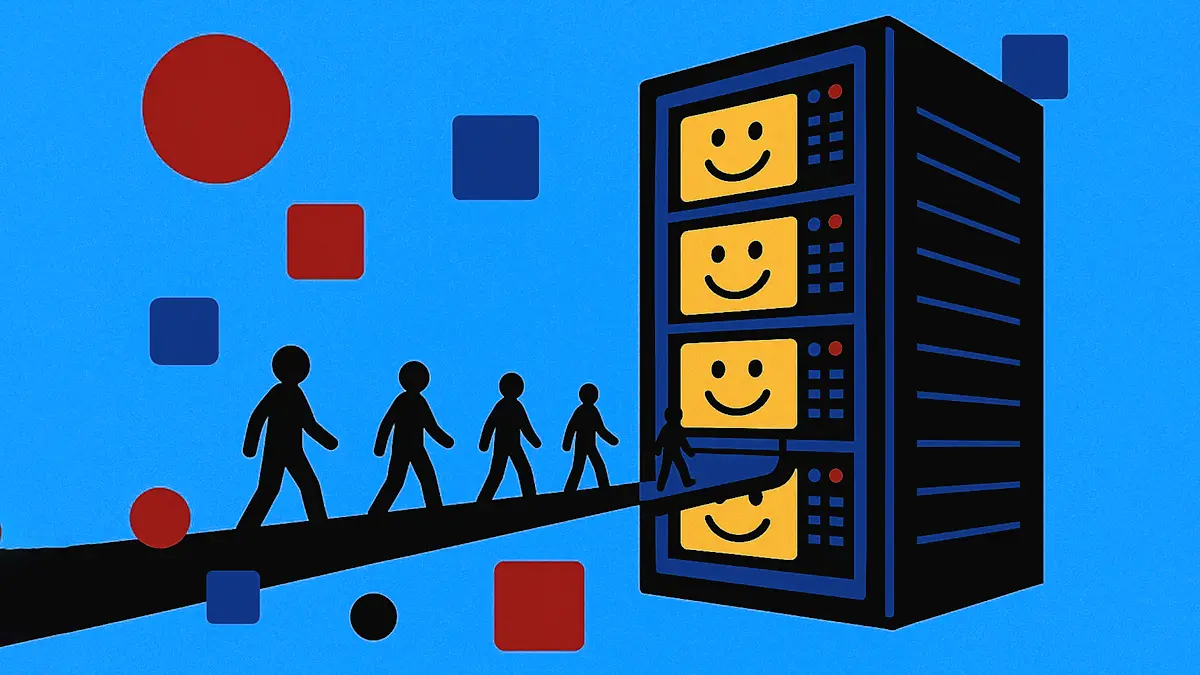AI in customer service is transforming the way businesses interact with their customers. Gone are the days of long wait times and frustrating automated systems. Instead, AI technology is now stepping in to provide faster, more efficient, and personalized service, revolutionizing customer interactions. This shift is not just about automation but about creating meaningful, engaging experiences for customers across various touchpoints.
The Revolution of AI in Customer Service
What is AI in Customer Service?
AI in customer service refers to the use of advanced technologies to automate and enhance customer interactions. From chatbots that handle routine queries to sophisticated algorithms that predict customer needs, AI is making it easier for companies to deliver top-notch support around the clock. Imagine asking a question and getting an instant answer—no hold music, no rerouting. This is the reality AI is bringing to customer service, offering a seamless and efficient support experience.
The Power of AI: Efficiency and Personalization
AI isn’t just about replacing human agents; it’s about augmenting their capabilities and improving the overall customer experience. AI can handle a significant portion of customer interactions, allowing human agents to focus on more complex issues and strategic tasks. For example, many companies now use AI to resolve up to 80% of customer queries automatically, freeing up valuable time for their support teams to address more nuanced and high-priority concerns. This balance between automation and human touch enhances service quality and operational efficiency.
The Impact of AI on Customer Service
AI in Self-Service Options
Self-service is increasingly becoming the go-to choice for many customers, driven by the convenience and efficiency of AI-powered solutions. AI-driven self-service tools, like chatbots and virtual assistants, provide instant support, which customers appreciate for its speed and accessibility. This shift mirrors the broader trend of digital self-service solutions, akin to how people now prefer using GPS apps over asking for directions. By empowering customers to find answers and resolve issues independently, businesses can improve satisfaction and reduce dependency on live support.
Economic Benefits of AI-Powered Chatbots
The economic advantages of AI-powered chatbots are substantial, making them an attractive option for businesses aiming to optimize their operations. By automating routine tasks, chatbots can save companies significant amounts of money and resources. For instance, it’s projected that AI chatbots will save companies around $8 billion annually by 2023. Furthermore, businesses that implement chatbots have reported reductions in operational costs by up to 30%, highlighting the financial benefits of adopting AI technology. This cost-effectiveness is complemented by improved service delivery and customer engagement.
Enhancing Customer Comfort with Chatbots
Today’s customers are comfortable with and even prefer using chatbots for their interactions, reflecting a shift in consumer expectations. Surveys indicate that about 67% of customers are happy to make purchases directly through chatbots, appreciating their efficiency and ease of use. This trend is reshaping how businesses approach sales and customer service, making AI a valuable tool for driving revenue while maintaining high levels of customer satisfaction. The adaptability of chatbots to various customer needs further enhances their role in modern customer service strategies.
How AI Personalizes Customer Interactions
Personalization Through AI Technologies
AI technologies have revolutionized how businesses personalize their interactions with customers, moving beyond one-size-fits-all approaches. With AI-driven recommendation engines, companies can offer tailored suggestions based on individual preferences and behaviors, creating a more engaging experience. This level of personalization not only enhances the customer experience but also boosts conversion rates. For example, AI-powered recommendations can increase conversion rates by up to 30%, showing how effective personalization can be in driving sales and customer loyalty.
Leveraging Predictive Analytics
Predictive analytics is another powerful AI tool that helps businesses anticipate customer needs before they even arise. By analyzing data patterns, AI can forecast customer behaviors and preferences, allowing companies to stay ahead of the curve and proactively address potential issues. This proactive approach enables businesses to provide more relevant and timely support, ultimately improving customer satisfaction and loyalty. Leveraging predictive analytics also helps in strategic planning and resource allocation, further enhancing operational efficiency.
The Efficiency of AI-Powered Solutions
Speed and Accuracy
One of the standout benefits of AI in customer service is its speed and accuracy, which significantly enhances the customer experience. AI solutions can reduce response times by up to 80%, making customer interactions quicker and more efficient. This rapid response capability is akin to using self-checkout at a grocery store—customers can handle tasks more swiftly without waiting in line. By providing immediate assistance and accurate information, AI improves overall service quality and customer satisfaction.
Streamlining Business Operations
AI can also optimize business operations by automating workflows and improving resource allocation. Intelligent routing ensures that customer requests are directed to the right agents based on their needs, while AI-driven summarization tools can help agents quickly understand the context of a ticket. These efficiencies not only enhance customer service but also streamline internal processes, making operations smoother and more effective. As businesses integrate AI solutions, they can achieve greater operational agility and improved performance.
The Future of AI in Customer Service
Growing Adoption and Future Trends
AI in customer service is rapidly gaining traction, with 56% of businesses already incorporating AI technologies into their operations. As AI continues to evolve, its role in customer service will expand, with virtual assistants and advanced AI tools expected to handle a significant portion of customer interactions in the near future. This growing reliance on AI reflects a broader trend towards digital transformation and innovation in customer service practices. Businesses that embrace these advancements will be well-positioned to lead in a competitive landscape.
Overcoming Challenges and Maximizing Benefits
Despite its advantages, implementing AI in customer service comes with challenges that businesses must address proactively. Companies need to carefully select the right AI tools, integrate them with existing systems, and ensure data privacy and security. By managing these challenges effectively, businesses can maximize the benefits of AI technology and enhance their customer service capabilities. A strategic approach to AI implementation will ensure that organizations can fully leverage its potential to drive service excellence and operational efficiency.
The integration of AI in customer service represents a major leap forward in how businesses interact with their customers. From enhancing efficiency and personalization to driving economic benefits, AI is reshaping the customer service landscape and setting new standards for support excellence. As more companies embrace AI technologies, customers can look forward to faster, more personalized, and seamless support experiences. The future of customer service is here, and it’s powered by AI, promising a new era of innovation and customer engagement.











